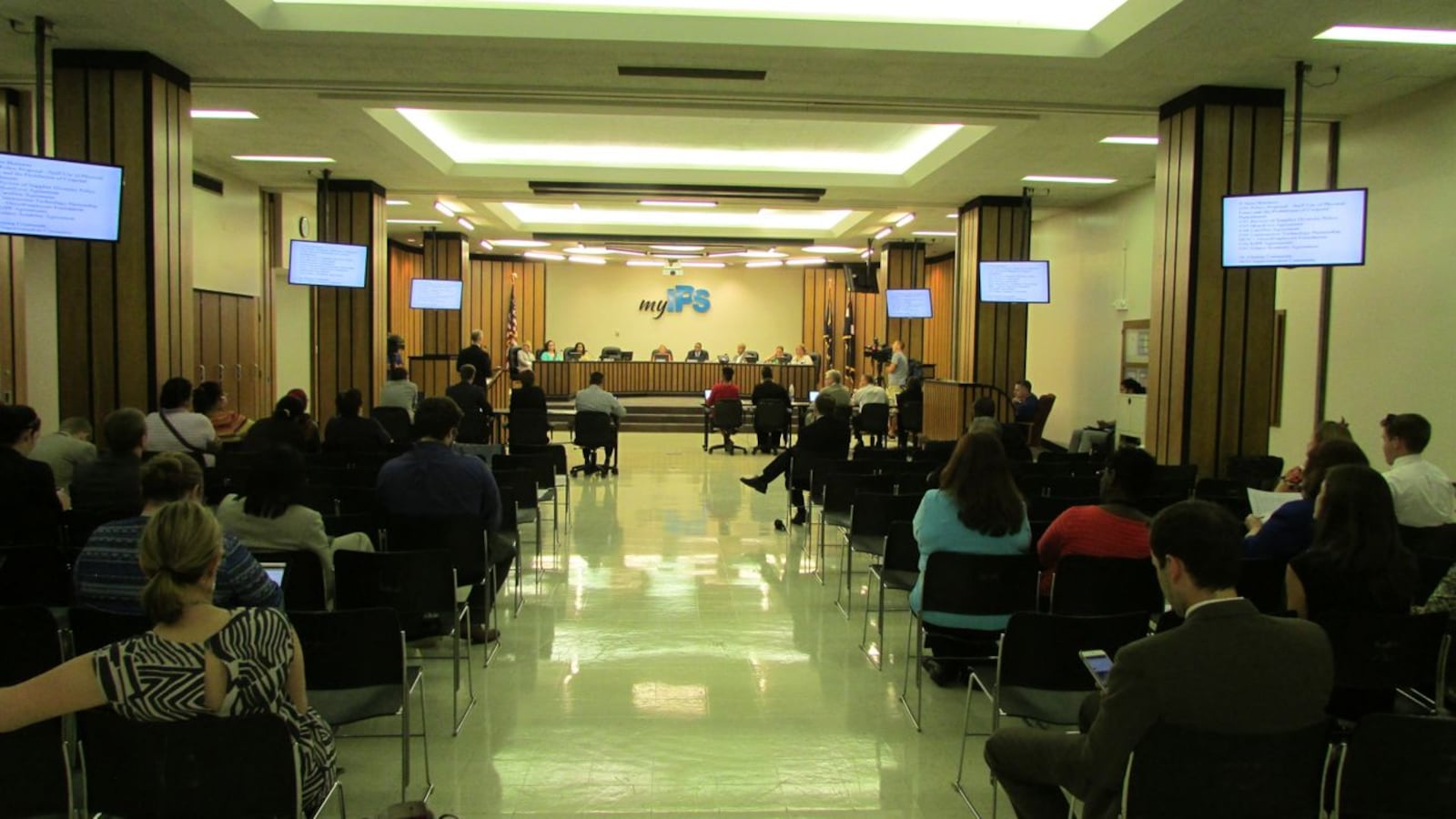With big changes on the horizon for Indianapolis Public Schools, the winners of the coming election will have huge influence over the future of the district.
The current board has aggressively pursued policies aimed at improving the lowest-performing schools, giving more power to school principals and increasing collaboration with charter schools. Their policies have won praise from national advocates, but they have also inspired frustration and suspicion among many local leaders.
Four of the seven seats are on the ballot, so critics of the board have a chance to take control. A change in orientation could stymie plans already set in motion and alter the direction of schools throughout IPS. One seat is guaranteed to change hands because board member Gayle Cosby, a frequent dissenter, is not running for reelection.
Here are the top four issues the next board will decide:
- Which high schools should close?
District leaders unveiled a three-year plan to close several high schools at a school board meeting Tuesday. The plan calls for John Marshall High School to convert to a dedicated middle school. But the blueprint doesn’t specify which other schools will close or even how many.

High schools in IPS have far fewer students than they are designed for — some are barely a quarter full — and the district is paying a high price to continue running underused buildings. Superintendent Lewis Ferebee’s proposal calls for the board to make a decision in 2017, with high schools expected to close in 2019.
At a recent meeting at Northwest High School, students, staff and community members spoke out against closing the school.
“The image of this school has been changing these past couple of years,” said Jeno Shanklin, a senior and football player at Northwest. “We just ask you guys to not only look at statistics but really look around at what’s going on within the school.”
The newest board members will be charged with deciding the future of the district’s high schools — and dealing with the possible backlash.
- What IPS schools should convert to the innovation model, and what should happen to ones that exist?
The current board has embraced “innovation” schools, a new model that hands management of individual schools over to outside charter networks or nonprofits. Innovation schools are still considered part of the district when it comes to state funding and student test scores.
The district projects that more than 10 percent of IPS students will enroll in innovation schools this year, a shift that will push funding and decisions from the central office to individual schools. Other innovation schools are in the pipeline, including a community middle school, Purdue’s high school and several other ideas in the early stages of development.
But the proliferation of innovation schools is controversial: Teachers at the schools are not part of the union, and the board has no oversight over their daily operations.
A change in the board’s general orientation could result in fewer schools being converted to innovation status, and the board also could decide against renewing contracts with existing innovation schools.
- How should Indianapolis families apply to school?
When Indianapolis families choose schools for their children, they are faced with a sea of options and nearly as many processes — and deadlines — for applying to school.
That’s the problem former-school board member Caitlin Hannon was hoping to solve when she left the board to found the nonprofit Enroll Indy. The organization aims to serve as a unified enrollment service, so families can enroll in IPS magnets, neighborhood schools and charter schools through the website and enrollment centers.
“There are a lot of barriers right now,” Hannon told the school board at a presentation Tuesday. “If we are going to have choice … that needs to be mean choice for every family.”
The IPS board has shown strong interest in unifying enrollment with the city’s charter schools, but the decision on whether to participate in Enroll Indy will rest with the next board.
A board whose majority is less sympathetic to charter schools might be unwilling to make it easier for students to enroll in them.
- Should the district stick with superintendent Lewis Ferebee?
The current school board renewed Ferebee’s contract in February — and gave him a big raise — but since then his administration has been hounded by criticism over its handling of sexual abuse allegations involving a school counselor.
District officials waited six days before reporting the abuse to the Indiana Department of Child Services, the Indy Star reported. Two district staffers were fired following the incident, and two more resigned after taking pretrial diversion agreements.
Ferebee has said that he was not aware of the failure to report abuse, but the controversy has continued to simmer, and critics have called for his resignation.
Ultimately, the board is responsible for hiring and firing the superintendent. When a new round of school board members took office in 2013, one of their first moves was offering former-superintendent Eugene White a buyout agreement.
If critics have their way, Ferebee could be the next superintendent whose administration comes to an abrupt end.

